The virus swept through Country Villa Sheraton nursing home in Los Angeles in the past year, killing 24 residents. Country Villa Rehabilitation Center, also in Los Angeles, and Country Villa Plaza in Santa Ana, lost 13 residents each.
The devastation was by no means unique to this cluster of 18 Southern California-based nursing homes. Across the country, other facilities also have suffered crushing casualties from the pandemic.
What’s different about Country Villa is that its current owner, Los Angeles businessman Shlomo Rechnitz – a controversial figure who runs these 18 homes through a web of companies – isn’t licensed by the state to operate them.
Instead, public health officials have left his applications “pending” for years.
State rules require nursing home operators to be licensed by the California Department of Public Health, which oversees nursing homes. But the department has allowed Rechnitz to skirt those requirements for Country Villa, according to a CalMatters investigation.
Rechnitz and his companies, including Brius Healthcare, have acquired at least 81 facilities with more than 9,000 beds, making him California’s largest nursing home owner. Rechnitz helped build his portfolio by purchasing Country Villa through a 2014 bankruptcy auction.
Today, the Country Villa stalemate reveals a state licensing process that is opaque, confusing, and rife with inconsistencies, CalMatters found. A review of state public health records, licensing correspondence, court records and facility financial reports shows misleading public information about who runs these Country Villa facilities – and bewildering delays by the state in deciding who is fit to hold the licenses to care for their fragile residents.
The state Department of Public Health gave brief and often vague responses via email to CalMatters’ questions about the change-of-ownership process, and why the Country Villa impasse has lasted so long. While the department provided documents in response to a Public Records Act request, it would not make anyone available to speak with CalMatters to answer key questions about state oversight and problems with the licensing process.
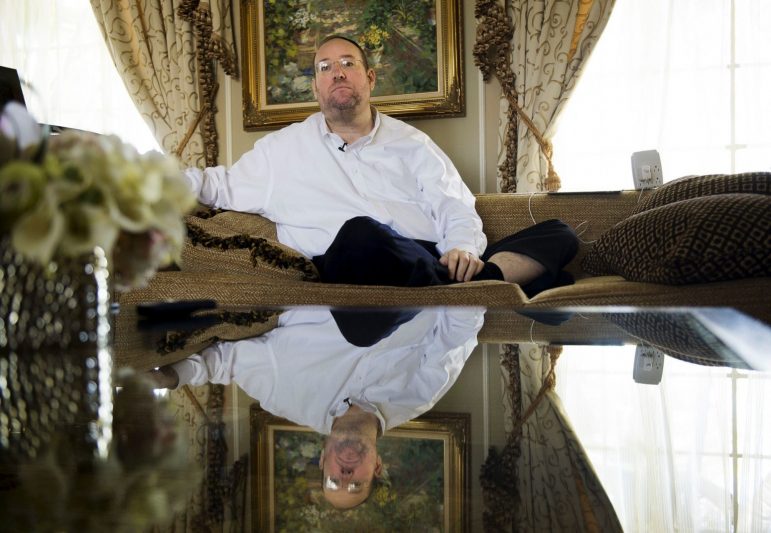
The state’s inconsistencies are not limited to Country Villa. During the period that the Country Villa applications have languished, the state denied Rechnitz’ companies’ licenses in 2016 for at least five other facilities, saying the practices in many of the chain’s homes had contributed to residents’ illnesses, injuries and deaths. The state then later approved licenses for his companies to operate two other nursing homes in Southern California.
“I’m just a little speechless when it comes to this ownership nightmare in California and how it’s gotten to this point,” said Molly Davies, the Los Angeles County long-term care ombudsman, whose office advocates for residents of nursing homes and other adult care facilities. “Really there’s an issue of the process having no integrity.”
State officials and Brius’ attorney, Mark Johnson of San Diego, say running the homes during the years-long licensing indecision isn’t breaking any laws.
Johnson said in an emailed statement that all Country Villa facilities have licenses in good standing and are being operated under an “interim management agreement,” which he described as “state approved.”
“We fully expect the applications to be approved,” he wrote. Johnson did not answer detailed questions from CalMatters about the situation with the state, and Rechnitz did not return phone calls or emails.
After Rechnitz bid on the Country Villa homes in federal bankruptcy court in 2014, Vice President Kamala Harris, then California’s attorney general, was so concerned with his track record that she filed an emergency motion to prevent him from purchasing or managing the homes. Harris referred to Rechnitz as “a serial violator of rules within the skilled nursing industry”— comments his attorney characterized at the time as “defamatory” and “outrageous.”
The California Department of Public Health has repeatedly raised its own concerns about the quality of care in many of the chain’s facilities. However, the state has sent conflicting messages over the years, having publicly endorsed Rechnitz in an unrelated 2011 court case as “highly qualified,” court records show.
Ultimately, the bankruptcy judge did allow Rechnitz, 49, to purchase the Country Villa homes. As is true with cars and hair salons, however, buying nursing homes isn’t the same as having a license to operate them.
In California, entrepreneurs can buy nursing homes that are failing or are simply up for sale, but they can’t “buy” the licenses to run them. That decision is left to the state, which requires all new owners to submit change-of-ownership applications that are then screened to ensure the applicant is deemed qualified to operate the facility.
State licensing rules and lingo can be confusing. The roles of “owner,” “operator,” and “licensee” are often referred to interchangeably – at times, the person or entity the state officially considers the licensee of a home has actually sold it; the person who bought it might not have their own license but now controls operations.
That’s because, during the application process, the state allows new owners to operate homes using the license of the previous owner. Such arrangements are intended to be brief. But, sometimes, they’re not. Add to that the additional complexity of management companies, in which yet another business comes in and runs the day-to-day operations of a home, and you get Country Villa.
Five years after receiving change-of-ownership applications for the Country Villa facilities, the department still hasn’t made a decision about whether to grant Rechnitz’ companies the licenses to run these 18 homes.
“This is an outrageous situation,” said Charlene Harrington, a professor emeritus at UC San Francisco who studies skilled nursing facilities. “I can’t believe the state has allowed this to happen. It’s gone on for so long.”
Lawmaker: oversight ‘ineffective’ or ‘nonexistent’
As COVID-19 has transformed many nursing homes into death traps, the role of state regulators has become even more critical in protecting some of California’s most vulnerable residents.Since the pandemic began, state records show, more than 9,000 nursing home residents have died of the virus – about 16% of California’s total deaths – though many health care experts believe that is an undercount.
Elder care advocates and some state leaders say the licensing impasse involving the Country Villa homes, with more than 1,700 beds, raises broad accountability questions: What is the state public health department’s role in ensuring timely compliance with its own licensing requirements? What happens if it doesn’t?
If the department denies the change-of-ownership applications for Country Villa, what would become of these residents?
“There is no statutorily defined timeframe to complete the application review process.”
MARK SMITH, SPOKESPERSON FOR THE CALIFORNIA DEPARTMENT OF PUBLIC HEALTH
The department refused CalMatters’ requests to speak directly with state officials, including its director, Dr. Tomás Aragón, and Heidi Steinecker, until recently a deputy director and top nursing home regulator. Representatives of Gov. Gavin Newsom as well as the state’s Health and Human Services Agency, which oversees the department and is led by Dr. Mark Ghaly, also declined to be interviewed. Both referred CalMatters back to the California Department of Public Health.
In four emails between Nov. 13 and April 2, three of which were unsigned, the department briefly answered CalMatters’ questions about the state’s licensing process. In one, a department representative said the state considers individual change-of-ownership applications on a case-by-case basis, and reviews of applicants with larger portfolios or more complex organizational structures take longer. As part of that, the state conducts a thorough investigation into the applicant’s history of compliance with state regulations, the email stated.
When asked whether interim management agreements need the state’s blessing, an unnamed department spokesperson said last week that an applicant “is not required to seek additional approval as a management company” while the change-of-ownership bid is being processed.
How long can this “pending” status go on?
“There is no statutorily defined timeframe to complete the application review process,” department spokesperson Mark Smith wrote in a Jan. 29 email.
“Right now, our system of government oversight is either nonexistent or totally ineffective.”
ASSEMBLYMEMBER AL MURATSUCHI (D-LOS ANGELES)
The department told California’s state auditor in 2018 that it was “developing regulations to clarify” the change-of-ownership application process. But in an email to CalMatters last week, a spokesperson said those efforts have been “placed on a temporary hold due to staff redirections associated with COVID response.”
One California lawmaker, Democratic Assemblymember Al Muratsuchi of Los Angeles, recently introduced Assembly Bill 1502 that would forbid using management agreements to “circumvent state licensure requirements.”
It would also require owners and operators to get approval from the state Department of Public Health before acquiring, operating or managing a nursing home. These issues have been a significant focus for California Advocates for Nursing Home Reform, which sponsored Muratsuchi’s bill. His office said the bill recently stalled in the Assembly health committee and is not expected to be heard until next year.
In March, Muratsuchi joined other lawmakers in announcing a package of seven nursing home bills aimed at improving corporate transparency, enhancing state enforcement and protecting the rights of nursing home residents.
“Right now, our system of government oversight is either nonexistent or totally ineffective,” Muratsuchi said.
Brius faces growing criticism
In the 15 years since Brius, one of Rechnitz’ main companies, embarked on its growth trajectory, the for-profit chain has faced increasing scrutiny for poor quality care and inadequate staffing levels, according to federal and state inspection reports, plaintiffs’ attorneys and media accounts.
Between October 2014 and January 2015, government regulators decertified or threatened to decertify three of Rechnitz’ companies’ nursing homesin California, a rare penalty that strips facilities of crucial Medicare and Medi-Cal funding.
One of those facilities, Wish-I-Ah Healthcare & Wellness Centre near Fresno, was closed after a 75-year-old resident died of a blood infection after staff left behind in her body a foam sponge used in dressing her mastectomy wound; investigators also found toilets brimming with fecal matter, among other serious problems, according to the state’s Nov. 3, 2014, accusation.
Problems mounted.
In a May 2018 report, the State Auditor’s office reviewed three large private nursing home operators, and spotlighted Briusfor having a higher rate of federal deficiencies and state citations than the rest of the industry in the state.
In California, regulatory oversight is shared. Every nursing home that accepts federal money must be inspected routinely by a state “survey” team, which ensures the homes are meeting federal standards. The team from the California Department of Public Health, which also conducts complaint investigations, can then cite a facility for violating federal or state rules, and levy fines.
Elder care advocates say they are angered by the California Department of Public Health’s failure to directly address Country Villa’s licensing purgatory.
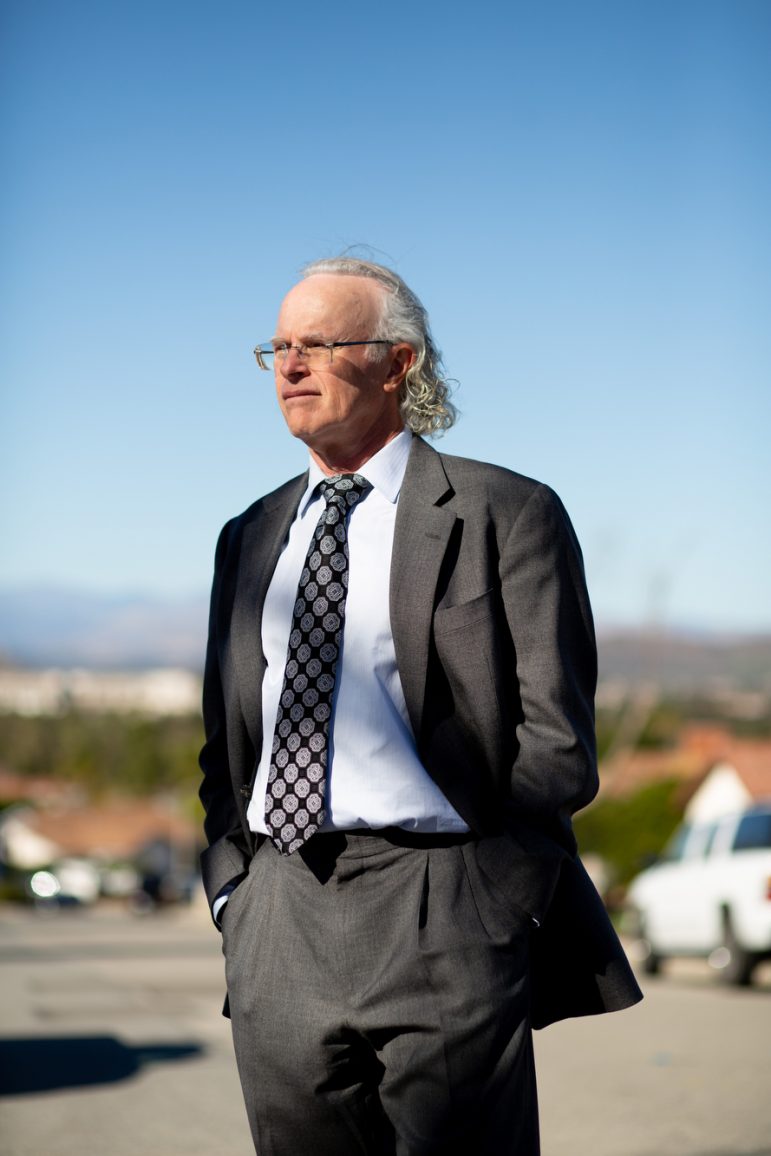
“People who live in nursing homes, their lives are in the hands of the folks who own and operate those facilities,” said Dr. Michael Wasserman, a geriatrician and immediate past president of the California Association of Long Term Care Medicine.
“As a society we’ve decided that there’s a need to license those facilities, and so either we’re licensing them and we’re passing some sort of judgment on the validity of those licenses, or we’re not,” he said. “I think someone needs to make a choice here.”
For 14 months, Wasserman served as CEO of Rockport Healthcare Services, the administrative services company for many of Brius’ nursing homes.
Rechnitz has steadfastly maintained that he does not own or control Rockport. In 2018, he testified before an administrative law judge that he never made any hiring or firing decisions for Rockport, though he did make “recommendations,” he said in the case involving Rockport and the Department of Health Care Services.
Wasserman saw it differently, telling CalMatters that he met with Rechnitz weekly and he “would tell me what to do.” Wasserman said he resigned in 2018 “for ethical reasons,” saying he felt Rechnitz undermined him in his attempts to improve quality of care.
Wasserman was concerned enough about the nursing home chain’s operations that he wrote a March 27, 2020, email to the California Department of Public Health as the pandemic was gaining speed, saying: “I ran a billion-dollar nursing home chain that presently is scaring the daylights out of me.”
The Washington Post reported in December that Wasserman’s criticism of his former employer was dismissed by Steven Stroll, whom the paper identified as Rechnitz’ accountant and owner of Rockport Healthcare Services. Stroll “said Wasserman spent excessively and contributed no more than half his time to Rockport business,” the newspaper reported, and that Wasserman once “only had positive comments about our customer facilities.”
In response, Wasserman told CalMatters he “worked day and night” to try to improve Rockport’s facilities, and that the money he spent was for training for nursing home leadership.
Change-of-ownership ‘broken’
Deborah Pacyna, spokesperson for the California Association of Health Facilities, which represents most of the state’s 1,100 nursing homes, is also frustrated with California’s change-of-ownership procedures. Because applicants have to jump through so many hoops to acquire and operate new homes, the process takes much longer here than in many other states, she said, citing an informal survey of 20 states. Those delays make staffing more difficult, she said, which in turn hurts residents.
“The (change-of-ownership) process is broken in California,” she said.
Jose Lynch, CEO of Pursue Health, which provides administrative and consulting support services to two new Southern California nursing homes, told CalMatters he struggles to understand how the state makes its licensing decisions. Lynch has a small ownership stake in both recently built facilities, with Rechnitz owning the majority, according to the California Department of Public Health.
In 2017, the state granted their company a license to operate The Ellison John Transitional Care Center in Lancaster. Two years later, the state issued a license to another of their companies to operate The Springs Health & Rehabilitation Center in Murrieta, according to state documents. With the Lancaster home, letters from local hospital executives and state and local leaders stressed the need for more skilling nursing beds in the region, according to records obtained by the San Francisco-based California Advocates for Nursing Home Reform, and shared with CalMatters.
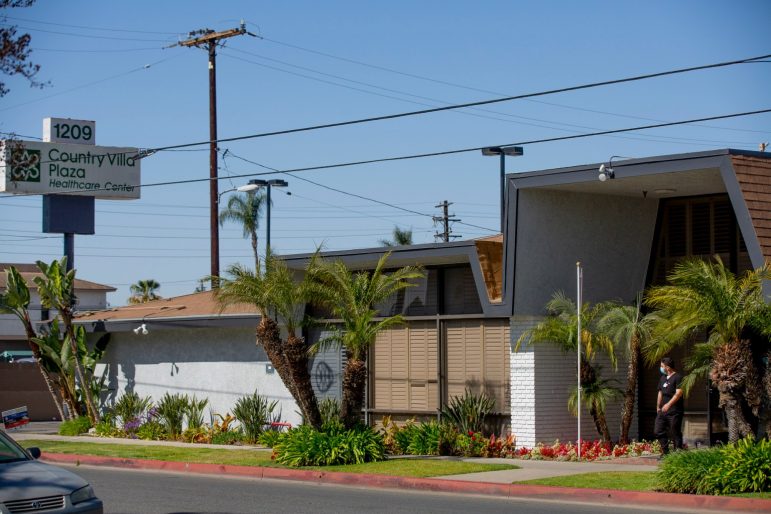
Lynch said the past year has been “a trying time in our business.”
“Nursing homes and our business are loved to be hated,” he said. “I encourage you to visit any (nursing home) we support to see the care and employee compassion with your own eyes.”
He said some other California facilities that get licenses are so terrible he wouldn’t want to put his own mother there, while others receive much stricter scrutiny. He said he believes advocates’ opinions about certain owners and “political decision making” form an important part of the state’s calculus in licensing decisions.
“At the end of the day, I don’t think it’s applied fairly,” he said.
California State Auditor Elaine Howle has agreed with concerns about inconsistency in the department’s licensing process. Her May 2018 audit, which criticized the state’s oversight of skilled nursing facilities, found that licensing lapses by the California Department of Public Health were increasing the risk that residents may not receive adequate care.
“Public Health’s licensing decisions appear inconsistent because of its poorly defined review processes and failure to document adequately its rationale for approving or denying license applications,” Howle wrote.
In a written response to the audit, then department director Dr. Karen Smith said she disagreed with this and other findings, stating that the auditor did not fully understand how licensing decisions get made.
“The (change-of-ownership) process is broken in California.”
DEBORAH PACYNA, SPOKESPERSON FOR THE CALIFORNIA ASSOCIATION OF HEALTH FACILITIES
Tony Chicotel, a staff attorney for California Advocates for Nursing Home Reform, said he and others have met with department representatives on a quarterly basis for five years – and the Country Villa “pending” licenses are almost always at the top of the agenda.
Leza Coleman, executive director of the California Long-Term Care Ombudsman Association, who has sat in on many of these meetings in recent years, said the state’s representatives always say that they can’t share information about an ongoing investigation.
“There’s no other industry that this would work,” she said. “If you bought a restaurant and you didn’t get your liquor license in place, do you think (the Department of Alcoholic Beverage Control) would let you serve alcohol while you’re getting things straightened out? And yet that is exactly what we have happen in long-term care.”
Chicotel contends that Rechnitz’ companies’ongoing operation of the Country Villa homes violates California’s Health and Safety Code 1253, which says no person in California shall operate a health facility without obtaining a license. He describes the longstanding license impasse with Rechnitz and his companies as “squatting.”
The department and Brius’ attorney, Johnson, disagree. “State statutes permit potential new owners of skilled nursing facilities to enter into management agreements to operate facilities while a change-of-ownership application is pending,” an unidentified department spokesperson said.
A rocky history
Rechnitz, a Los Angeles entrepreneur, was in his mid-30s when he began buying nursing homes in 2006, creating a complex business structure for his holdings, public records show.
For a while, the California Department of Public Health seemed to support this newcomer, hiring his company to manage distressed facilities. In August 2011, Dr. Ron Chapman, then director of the department, petitioned in Santa Barbara Superior Court to have Brius, through its CEO, Shlomo Rechnitz, temporarily take over a struggling Santa Barbara nursing home.
“Mr. Rechnitz is a highly qualified individual and has an excellent background and reputation,” the petition stated.
Three years later, though, some state health officials were expressing worry aboutthe expanding operation.
Jean Iacino, a top official at the Department of Public Health, penned a declaration supporting then-Attorney General Harris’ 2014 emergency motion. She said she worried about the safety of placing additional residents under the care of Rechnitz and his corporate entities, “given their demonstrated record of repeated and ongoing noncompliance with state and federal regulatory requirements, and resultant enforcement actions.”
Iacino expressed “great doubt as to whether Rechnitz can satisfy this ‘good character’ requirement.” California’s Health and Safety Code requires that applicants for a health facility license be of “reputable and responsible character.”
Another state official, Robert Sands of the Department of Health Care Services, also registered “grave concerns… about the pending sale of additional facilities,” according to his own declaration.
“…irresponsible, baseless and injurious character assassination.”
ATTORNEY FOR SHLOMO RECHNITZ, RESPONDING IN COURT TO THE STATE’S 2014 CRITICISM OF THE NURSING HOME OWNER
In a strongly worded response to Harris’ emergency motion, filed with the bankruptcy court the following day, Rechnitz’ attorney in the bankruptcy proceeding, Robert Orgel, described the state’s critiques as “irresponsible, baseless and injurious character assassination.” He said the emergency motion had nothing to do with Rechnitz’ qualifications to operate nursing homes, but was instead the result of “a financial regulatory dispute with Rechnitz as to a single cost report.”
“That such defamatory statements are made on the State’s behalf is reprehensible, and they should be withdrawn on the record,” he wrote in the response.
In October 2014, U.S. Bankruptcy Judge Catherine Bauer approved the sale of the 18 Country Villa homes to Rechnitz, noting that the state still maintained regulatory authority and that purchasing the homes did not mean he was being granted a license to operate them.
Even before Rechnitz acquired Country Villa, some of the homes had been mired in lawsuits. After the purchase was finalized, concerns about practices in those facilities continued to crop up in lawsuits and government investigations.
Today, 46% of Rechnitz-affiliated nursing homes have an overall rating from Medicare of one or two stars out of five, compared with about 26% of all homes across California with similarly low ratings. A federal two-star rating is described as “below average”; a one-star rating as “much below average.”
Rechnitz told The Sacramento Bee in 2015 that the facilities’ below-average performance reflects the fact that he often takes over homes that are already in distress.
Licenses denied — does it matter?
While the state has left Country Villa homes in licensing limbo, officials were more decisive about another acquisition by Rechnitz and his chain.
As he did with Country Villa, Rechnitz submitted change-of-ownership applications for Windsor Chico Creek and four other Windsor facilities in February 2015. The five facilities, mostly located in Northern California, together represent more than 600 beds.
Unlike with Country Villa, though, the department said “no” — explaining that many facilities “owned, managed, or operated, either directly or indirectly, by the applicant” had poor track records, according to 22-page denial letters addressed to Rechnitz. In July 2016, the California Department of Public Health rejected Rechnitz’ companies’ applications to take over operations of the five Windsor homes.
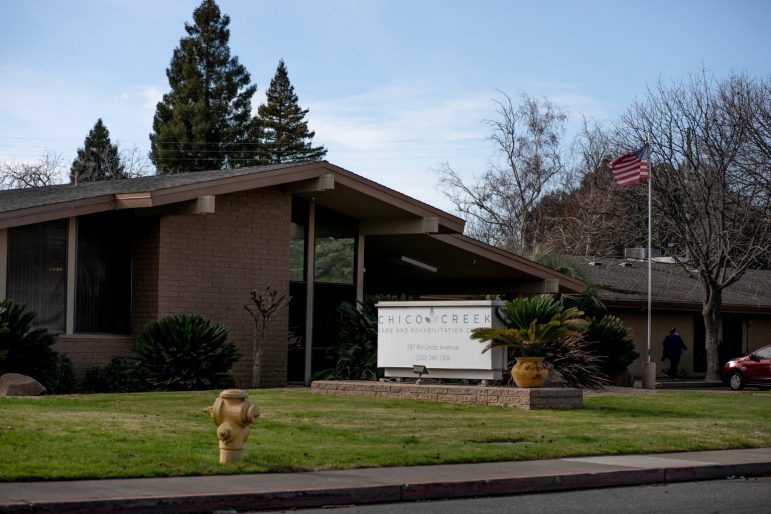
In the opaque world of nursing home licensing, those denials did not necessarily mean Rechnitz was out of the picture. According to cost reports filed with the Office of Statewide Health Planning and Development in 2019, Rechnitz is listed as the owner of all five homes.
But this isn’t what members of the public would see if they looked up the homes on the Department of Public Health’s consumer website. The Cal Health Find database encourages Californians to research health care facilities and glean provider details, check out performance history, compare facilities and file complaints electronically.
On that site, the owners/operators of all five Windsor homes are identified as Lee Samson and Lawrence Feigen, among other individuals. The state told CalMatters in an emailed response that, because Rechnitz was denied, the previous Windsor operator “still remains the legal licensee for these properties.”
However, the Windsor website does not include these five nursing homes in its stable of 29 care facilities in Northern and Southern California. Todd Andrews, a senior vice president with S&F Management Co., said the company provides “professional consulting services to Windsor facilities.” He said those five homes were sold to “entities related to Mr. Rechnitz” six and a half years ago and that Samson and Feigen have “zero involvement” with them.
An OSHPD spokesman said facilities are responsible for filing their cost reports, referring CalMatters back to the California Department of Public Health to discuss any discrepancies.
In rejecting Rechnitz’ applications in 2016 for “non-compliance,” the department outlined 265 federal violations deemed as serious, as well as 108 state citations, from the previous three years. Documented problems ranged from abuse and neglect to severe dehydration, lack of adequate food, serious medication errors and accidental deaths.
“…she had to wait one hour to be changed from her soiled brief. She stated, ‘I was upset.’ Tears were running down her face as she spoke.”
EXCERPT, JULY 2019 STATE INSPECTION REPORT OF WINDSOR CHICO CREEK CARE & REHABILITATION CENTER
In one of the homes for which a change-of-ownership application was denied – Windsor Healthcare Center of Oakland – the state’s denial letter referenced a serious violation at that facility for neglecting to treat skin ulcers and pain of six different residents, including a paralyzed resident who was admitted to the emergency room “covered in feces from the mid-back to the upper thighs and was subsequently place(d) in the intensive care unit for sepsis.”
Some say they are frustrated by Rechnitz’ companies’ continued involvement with the Windsor homes.
“I have no idea how the state allows them to do this,” said Joseph M. Earley III, a Chico-based elder abuse attorney, who is representing a former administrator of one of the Windsor homes.
The former administrator, Don Wessels, told CalMatters he was fired after resisting pressure to cut staffing levels.
At the time of his hiring, the one-star facility had recently been issued a federal “immediate jeopardy” deficiency for failing to prevent a resident’s abuse. That level of deficiency is reserved for the most egregious incidents in nursing homes that could cause serious injury or death. Rockport and Rechnitz’ company, Chico Heights Rehabilitation & Wellness Centre LP, have denied the lawsuit’s allegations and asked the court last month to order Wessels to arbitration, according to court papers.
Wessels filed a lawsuit in Butte County Superior Court last May against Rockport as well as one of Rechnitz’ companies. Describing Rechnitz as his “de facto employer,” Wessels was hired by the companies in December 2018 to run Windsor Chico Creek Care & Rehabilitation Center and communicated regularly with Rechnitz, according to the lawsuit.
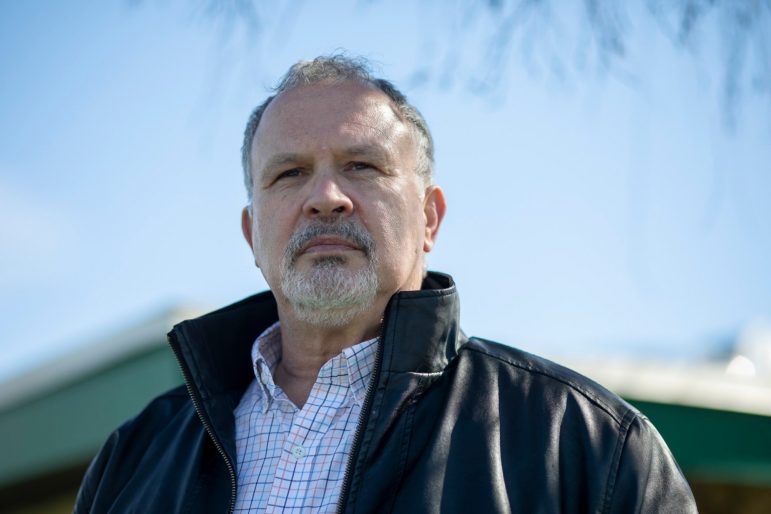
Wessels said in an interview with CalMatters that deciding to take the job “gave me pause.” But he knew many of the staff and residents from working there years earlier and felt they could benefit from his help, he said. When he arrived, Wessels said, he found the facility understaffed and ill-equipped to handle an influx of residents fleeing the nearby Camp Fire. Vendors that supplied adult briefs, pharmacy, physical and occupational therapy and housekeeping supplies had gone unpaid for months, according to Wessels’ complaint. He quickly worked to clear up the “immediate jeopardy” violation, he said in the interview, and within a month hired a dozen certified nursing assistants and nine nurses.
For a few months after that, Wessels’ complaint alleged, the facility was profitable and Rockport’s management was happy with him. According to the suit, Rechnitz “began seeking plaintiff’s advice regarding other Rockport facilities and referred to plaintiff as an ‘area CEO.’” Then the number of residents declined and Wessels “came under intense pressure” to drop staffing levels below legal limits, according to the complaint. Six months after he was hired, Rockport’s in-house counsel fired him on June 21, 2019, the complaint alleged.
The following month, state inspectors visited the facility and issued two federal deficiencies, one related to abuse and neglect, the other to insufficient staffing. Workers described the facility as “short-staffed,” with one certified nursing assistant describing discovering a resident “sitting in her wheelchair next to her bed, with urine and feces running down her legs,” according to the July 2019 inspection report. The resident told inspectors she’d been left for an hour in a soiled brief.
“She stated, ‘I was upset,’” the report said. “Tears were running down her face as she spoke.”
In 2018, Rechnitz and his companies dropped their appeals of the denials. But in recent weeks, they have resubmitted new change-of-ownership applications for the homes, according to state documents.
As COVID surged, LA turned to Country Villa
With the pandemic surging in California last spring, officials in Los Angeles County scrambled to find placements for recovering COVID-19 patients. The county public health department began designating certain skilled nursing facilities to accept them, homes willing to devote an entire floor or building to the care of COVID-positive patients.
Four Country Villa homes have been among them, according to the county website.
Dr. Zachary Rubin, an infectious disease physician with the Los Angeles County Department of Public Health, who conceived of and oversaw the COVID-designation program, said that – during the initial surge last spring – “we realized very quickly that we just weren’t able to control these outbreaks in the facilities.” When patients from skilled nursing facilities were cleared to leave hospitals, many of them were infectious.
The county proposed the idea of COVID-designated homes on conference calls with skilled nursing facilities – but “there weren’t a huge number of takers at the beginning,” he said. The facilities who came forward had often had major outbreaks already, he said.
State data show that COVID-19 took a toll in the designated Country Villa facilities: 28 residents have died of the virus in Country Villa Los Feliz, 26 in Country Villa South, 21 in Country Villa East. Those three homes were in the top 6% of homes statewide in terms of resident deaths due to COVID-19, according to a CalMatters analysis of state data. The fourth home, Country Villa Pavilion, has had 15 residents die of COVID-19.
All four Country Villa homes have been cited by the California Department of Public Health for infection control violations in recent years, records show. Rubin said he initially thought about excluding from the program nursing homes with infection control violations but found that proved impractical – all facilities had them.
Country Villa South Convalescent Center in Los Angeles “took very seriously the well-being of those patients and was putting in place more than we were recommending to care for the patients.”
DR. ZACHARY RUBIN, LA COUNTY DEPARTMENT OF PUBLIC HEALTH
State inspectors dinged Country Villa South, the first facility to volunteer for the program, four times for infection control violations since last March. In one instance, after several staff were confirmed positive for the virus, inspectors cited the home in April 2020 for failing to implement infection control protocols to prevent the spread of COVID-19. “These deficient practices had the potential to place all 75 residents of the facility at risk…,” the state concluded in its report.
Rubin said Country Villa South and the other participating Country Villa facilities were “highly engaged and very compliant with our recommendations.”
Country Villa South “took very seriously the well-being of those patients and was putting in place more than we were recommending to care for the patients,” he said.
Even before the pandemic, though, some Country Villa facilities had troubling histories, records show. Of the 18 homes, half have Medicare ratings of one or two stars. Since 2017, 14 of the 18 Country Villa homes have been hit with civil penalties totaling close to $500,000, as of January, according to a CalMatters analysis of state and federal data.
In August, for example, the state fined Country Villa Mar Vista, located three miles from Venice Beach, $20,000 after inspectors determined that staff failed to intervene with a resident who needed help with eating and drinking, leading to severe malnutrition, dehydration, sepsis and, eventually, death.
Other Country Villa homes have fared better. Six of the 18 homes have four-star, or better than average Medicare ratings, and four have received no fines from state and federal regulators since 2017.
Why won’t the state decide?
Over the years, advocates have repeatedly expressed concerns to the state Department of Public Health about the unresolved license applications for operation of the 18 Country Villa homes. In a 2016 letter to then director Dr. Karen Smith – and in similar letters to other department officials in 2018 and 2019 – Patricia McGinnis, executive director of California Advocates for Nursing Home Reform, called on the state to deny Rechnitz’ companies’ pending applications.
“The Department has created an environment where chain operators with deplorable records have virtual carte blanche to acquire more nursing homes in California,” McGinnis wrote.
“… Approving the applications despite the appalling history would signify the Department’s complete surrender to the nursing home industry,” she wrote, describing the department’s public silence on the matter as “a source of great concern.”
Why, then, has the state not acted on the Country Villa applications — but acted on others?
State officials say that even though an individual owner’s history and reputation is always taken into consideration, each application gets considered separately. In the end, the Country Villa applications have remained stuck in pending status, the state has denied Rechnitz’ companies’ licenses for the five Windsor facilities — and granted licenses to operate The Ellison John Transitional Care Center in Lancaster and The Springs Health & Rehabilitation Center in Murrieta.
“The Department has created an environment where chain operators with deplorable records have virtual carte blanche to acquire more nursing homes in California.”
PATRICIA MCGINNIS, CALIFORNIA ADVOCATES FOR NURSING HOME REFORM, IN A 2016 LETTER TO STATE
Davies, the Los Angeles County long-term care ombudsman, describes this kind of variation as “befuddling.”
“There’s an inconsistency in the process, an application of rules for some and not for others,” she said.
Johnson, Brius’ attorney, also raised frustrations about the inconsistent approach in an email to CalMatters.
“My client was granted a skilled nursing facility license in June 2014 (just a few months before acquiring the Country Villa facilities) and again in July 2018,” he wrote. “My client also has over 80 (skilled nursing facility) SNF licenses in good standing in California. We nor the State Auditor can explain the reasons for the delay.”
Department officials said in an email that in deciding to approve the two new facilities and not others, they took into consideration that they were newly built facilities that brought additional bed capacity to areas of the state that were underserved.
Some elder care advocates believe the department is stymied by logistics – if the state denies these applications, it will either need to find someone to run the facilities, or figure out new placements for all of the current residents. Neither is simple.
“It doesn’t matter, honestly, how terrible the care is” in California’s nursing homes, said Kim Valentine, an Orange County elder abuse attorney. “They know and they close their eyes to it, because the other alternative is – where are we going to put them? It’s a very broken system.”
Matt Borden, a San Francisco attorney who filed a class action suit in 2011 against numerous nursing homes, including the Country Villa facilities before Rechnitz’ purchase, said: “The state is incredibly weak in regulating people like this. And, conversely, Shlomo has a considerable amount of influence.”
Brius’ administrative services company, Rockport Healthcare Services, recently hired the lobbying firm of Jason Kinney, a longtime friend of Gov. Gavin Newsom whose controversial French Laundry birthday celebration in November has come under significant scrutiny. Last fall, Rockport lobbied the Newsom administration on “pandemic related staffing issues.” Kinney did not return phone calls or emails requesting comment.
While not everyone agrees on the best way to resolve the Country Villa licensing situation, many advocates say they want to see stronger accountability measures, so individuals cannot purchase and operate nursing homes without a license to run them.
The clock is ticking.
In October, residents of three Central Valley nursing homes received a one-page letter from their current operator, notifying them that their homes would be taken over by a new owner in January.
His name? Shlomo Rechnitz.
“We are confident you will be in good hands,” the letter promised.
In February, the state received the change-of-ownership license applications.
Unprotected: California’s nursing home failure
A collaboration of California nonprofit newsrooms.
Immediate Jeopardy: Death and neglect in California nursing homes – KPCC/LAist
CalMatters data reporter Erica Yee contributed to this report.
